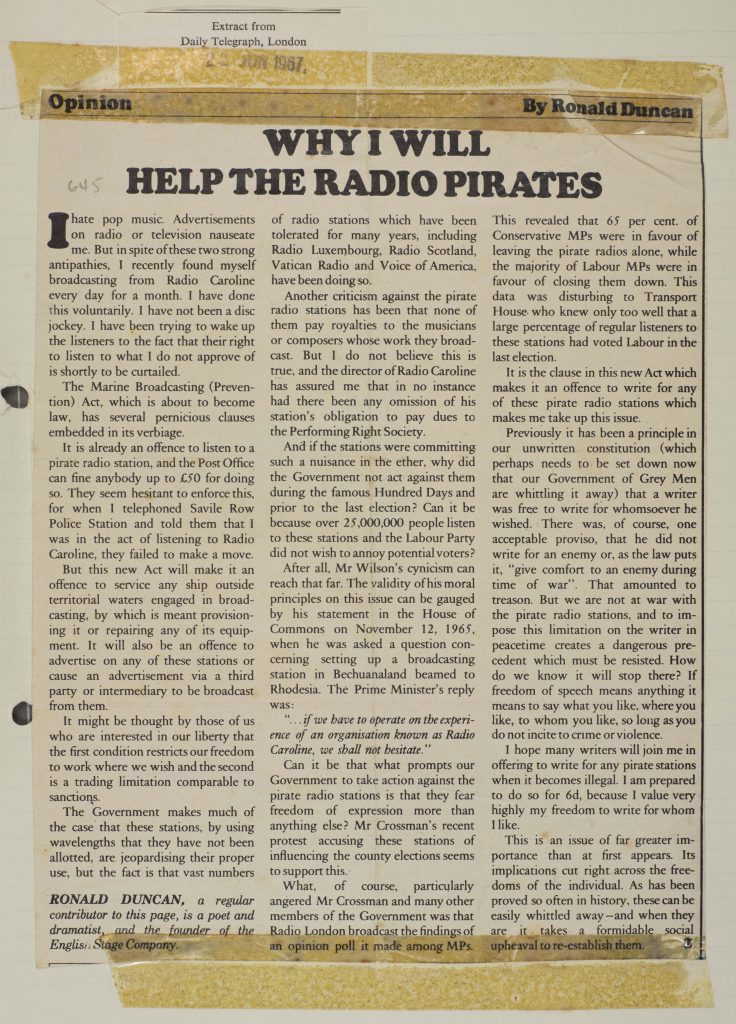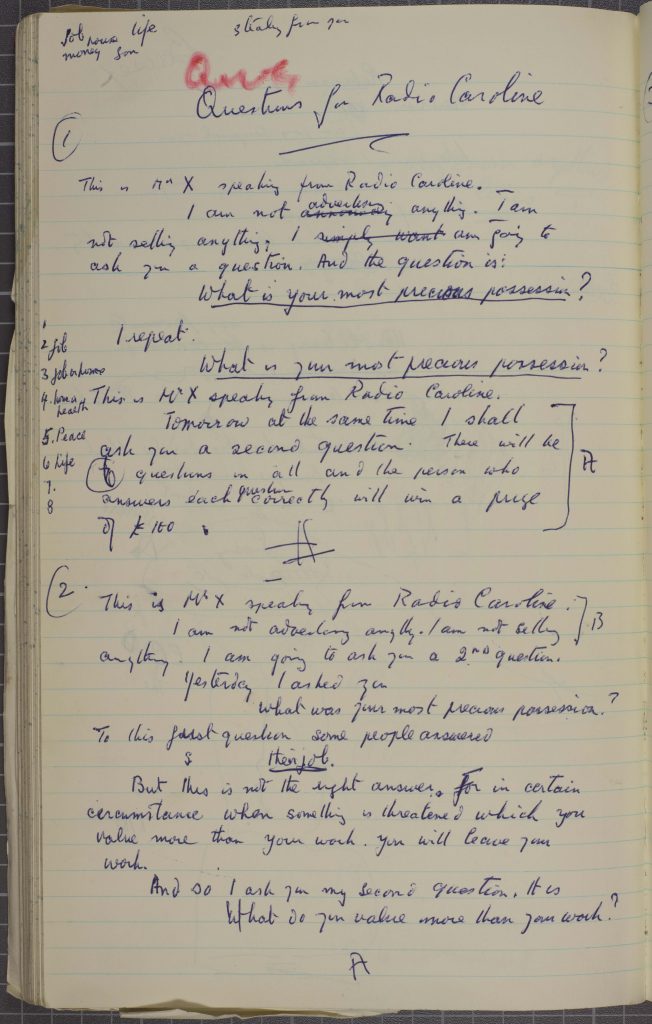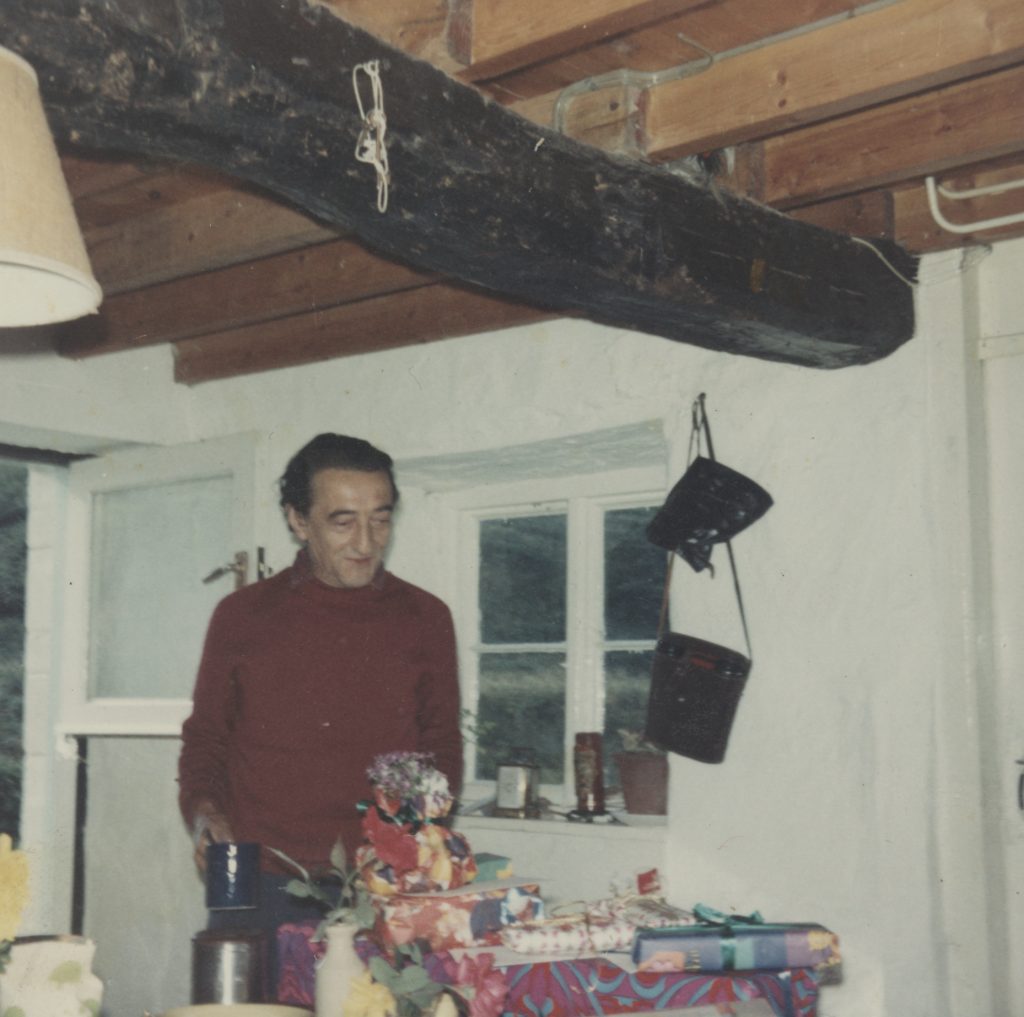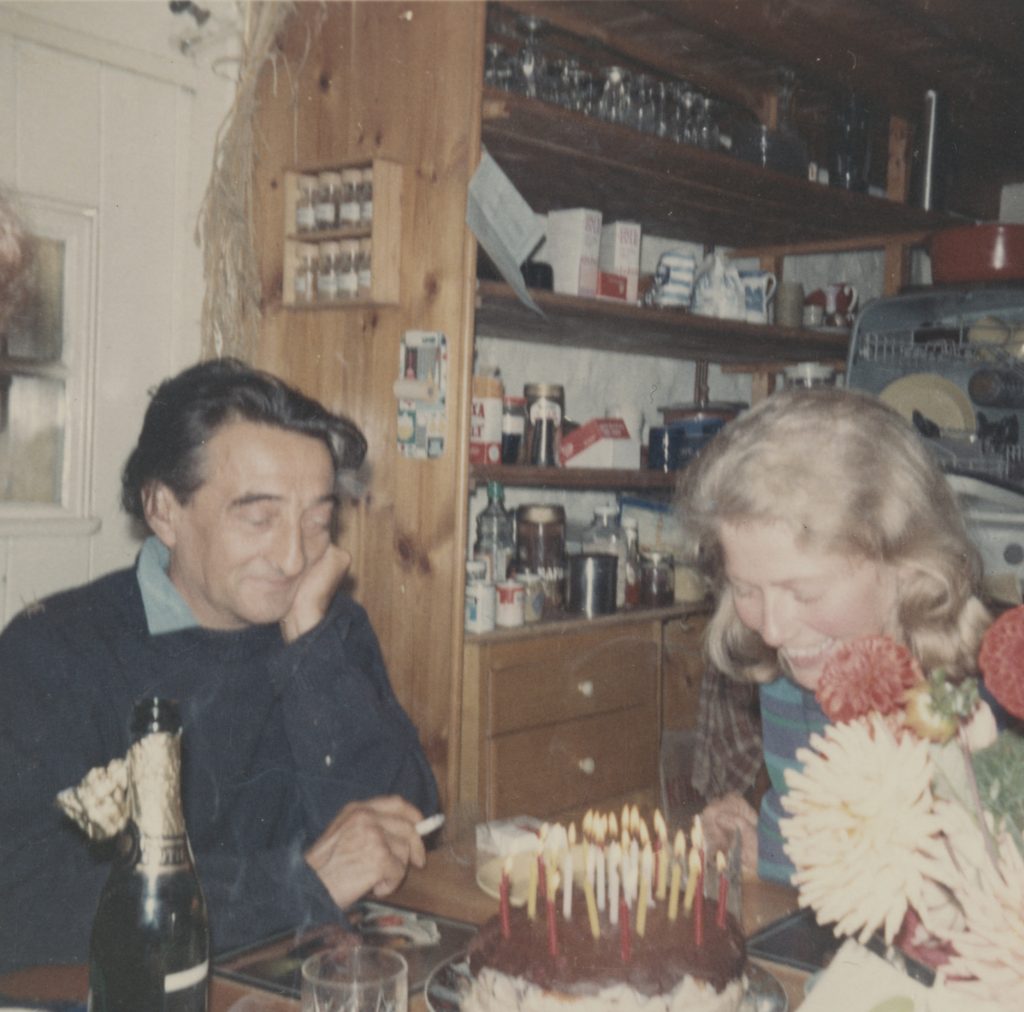What was life like for the community at Syon Abbey in the twentieth century? What did the nuns and sisters do during the day? And did major world events have an impact on life in this enclosed community? These questions and more can now be explored through recently-catalogued material in the Syon Abbey archive.
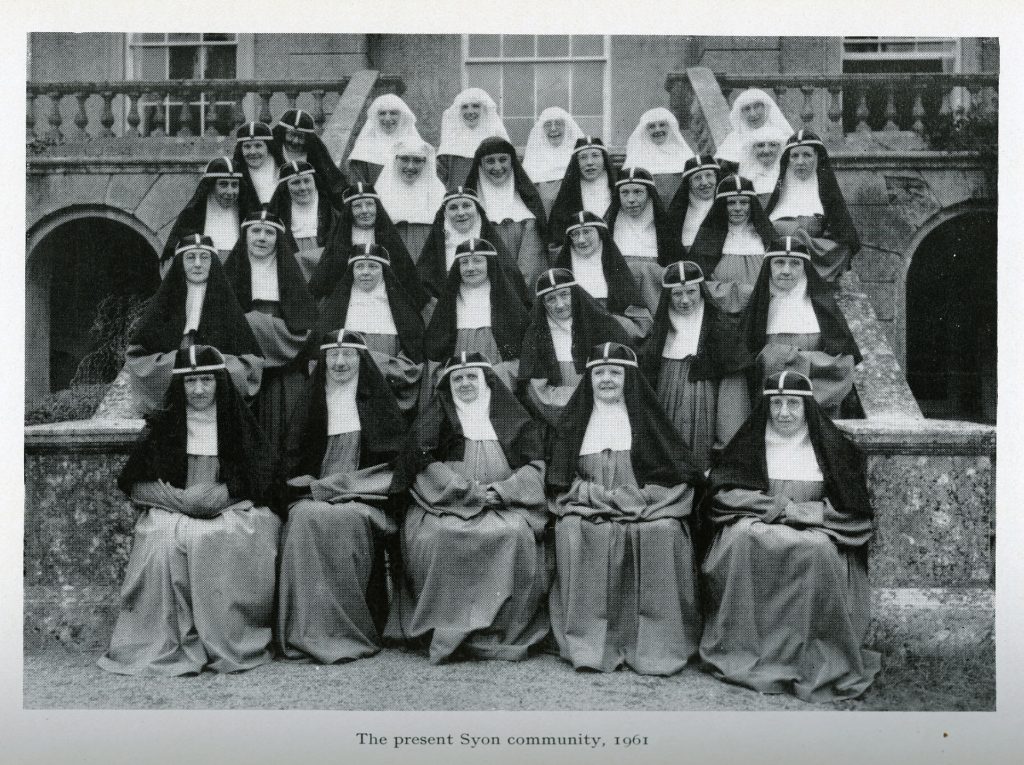
Photograph of the community in 1961. From ‘The Poor Souls’ Friend’ 1960-1, p. 178.
Community Diaries
A valuable archival resource for exploring daily life at Syon Abbey are the 100 diaries, kept by the community between 1890 and 2004. These diaries provide details relating to spiritual matters, such as prayer, feast days, and religious ceremonies, but also offer greater insight into the intricacies of day-to-day life in a religious community. These include references to: recreation; visitors to the Abbey; growing crops and raising livestock; construction and repairs to buildings; correspondence sent and received; and observations about the weather. The diaries also reveal that the Syon nuns were aware of national and international news outside of the enclosure, including the coronation of Queen Elizabeth II and the death of Joseph Stalin. Furthermore, the diaries indicate that global events, such as the First and Second World War, did have an impact on the community. For example, the diarist writes much about the Belgian refugees living in the local town of Chudleigh between 1914 and 1916, as well as the American soldiers who in the 1940s were encamped on land belonging to Syon Abbey. Finally, the diaries also bring to light the personalities and interactions within the community through several light-hearted as well as heartfelt entries.
The community diaries can be searched in our online catalogue here.
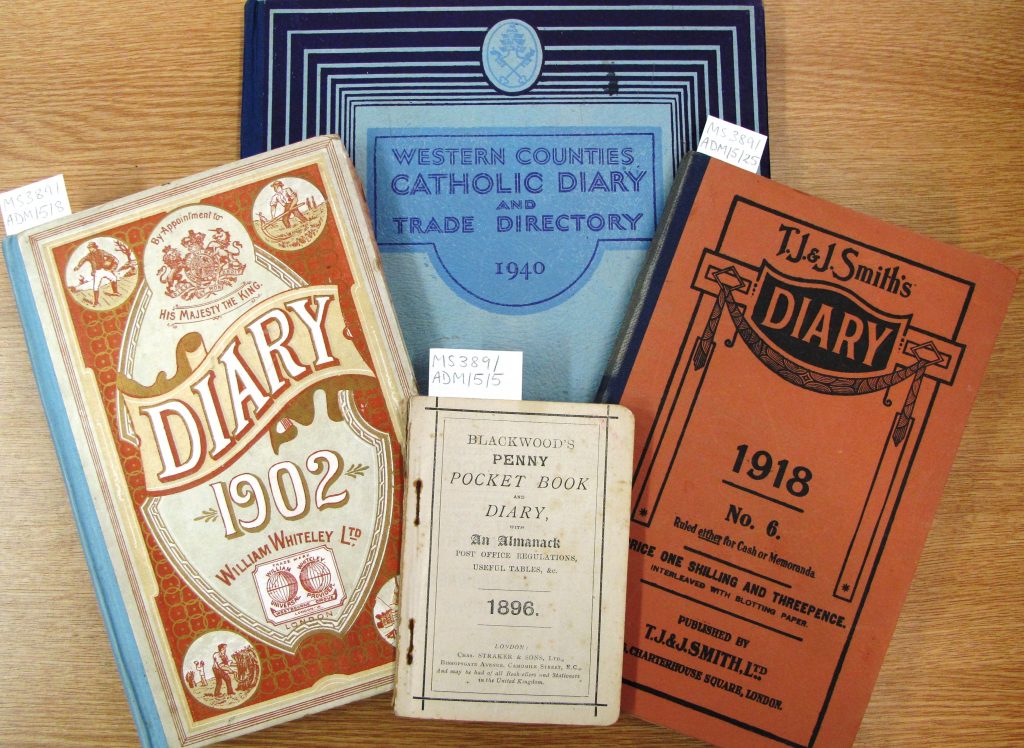
Syon Abbey Community Diaries (Ref: EUL MS 389/ADM/5)

Diary 1947-1950 (Ref: EUL MS 389/ADM/5/47) The entry for the 26 April 1947 reads: ‘1st annivers:[ary] of Lady Abbess Consecration – day opened with a chimney on fire in Presbytery – sung mass – tea & happy recreation.’
Another useful document for gaining insight into the daily routine at Syon Abbey is the so-called ‘Book of Customs’ or ‘Customs Book’, which provides guidelines on community life, both spiritual and secular. It includes instructions on conduct in the choir, where and when silence should be kept, and how often different types of laundry may be washed. The Book of Customs also contains details of the duties of the different offices the nuns could hold, such as those of the cellaress (responsible for food and drink), the sacristan (responsible for church furnishings), and the infirmarian (who nursed the sick). There are a number of manuscript copies of the ‘Book of Customs’ in the archive, transcribed into notebooks and dating from the late nineteenth century to approximately the mid-twentieth century. Several notebooks contain handwritten amendments, indicating that the Book of Customs was revised regularly.
Material relating to customs can be searched in our online catalogue here.
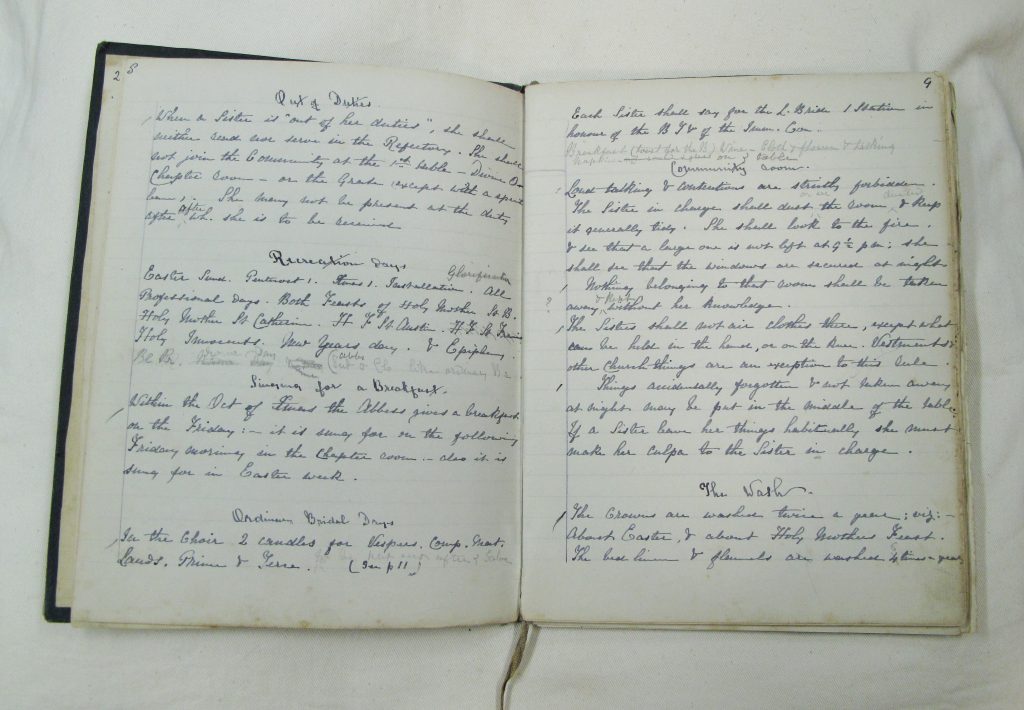
The Book of Customs (Ref: EUL MS 389/RUL/4)
Minutes of the Chapter and the Council
The minute books of the Chapter (all the sisters in solemn vows, as well as the sisters in temporary vows who had been professed for three full years) and the Council (a small group of advisors to the abbess) shed light on a broad range of matters regarding the management of Syon Abbey. The Conventual Chapter generally discussed and voted on matters such as the election of abbesses and councillors, new admissions to the Order, and any sister wishing to make her vows. The Council would meet with the abbess to discuss issues on a wide variety of administrative matters relating, for example, the appointment of staff, revisions to the constitutions, and the management of the estate. The minute books of both the Chapter and the Council provide fascinating insight into the day-to-day administrative challenges of managing a monastery in the twentieth century.
The Minutes of the Chapter can be searched in our online catalogue here.
The Minutes of the Council can be searched in our online catalogue here.
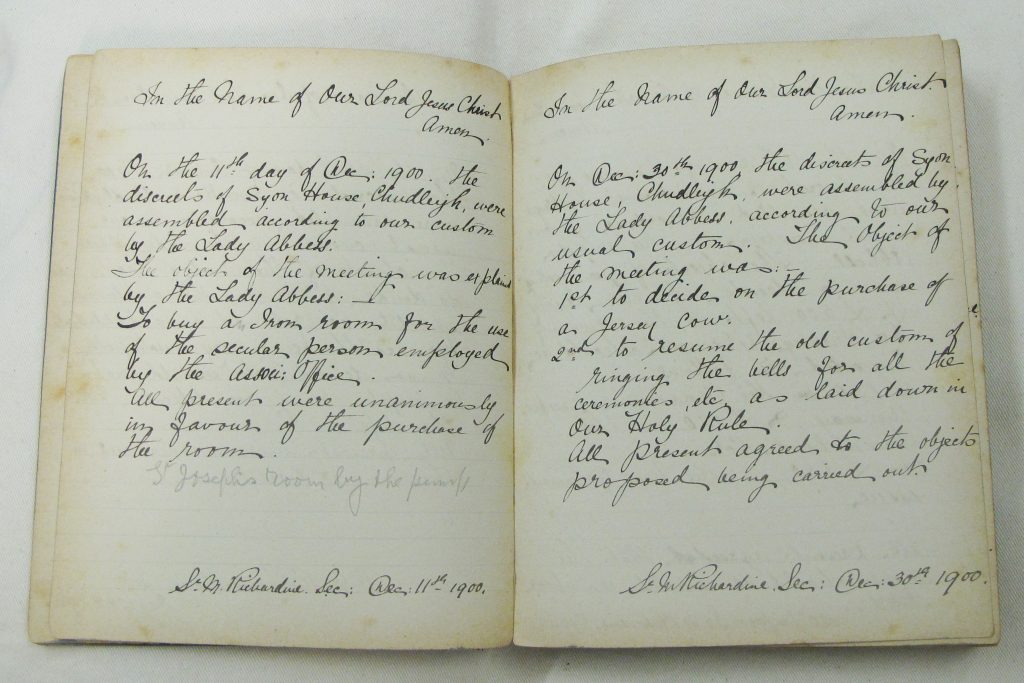
Notebook entitled ‘Minutes of the ‘Discreets”, 1898-1907 (Ref: EUL MS 389/ADM/2/2)
On a personal note…
As an archivist with little knowledge of religious orders and women religious prior to embarking on the Syon Abbey archive cataloguing project, these records were invaluable in gaining an understanding of the community and the day-to-day operation of a monastery. I hope you enjoy them as much as I did!
By Annie, Project Archivist
